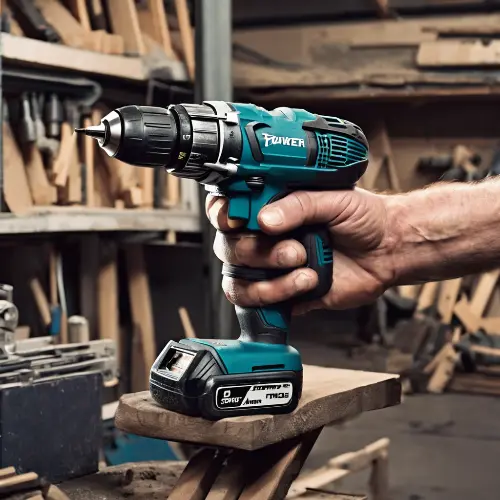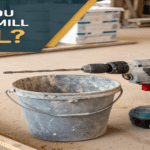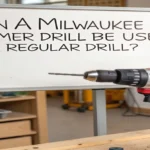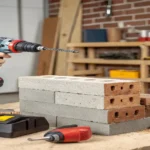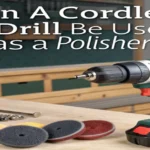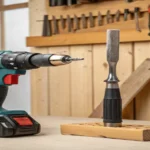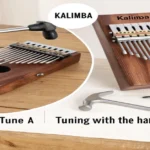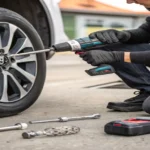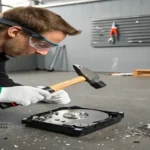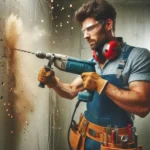How To Choose A Hammer Drill
As a DIY home renovator, the hammer drill is an indispensable power tool for me. However, when I bought my first one several years ago, the selection was frankly overwhelming.
Cordless or corded? What chuck size? Impact energy? My brain hurt!
I have been there and done that after using some duds, here is what I know about purchasing such a hammer drill which might not disappoint. Making a hammer drill purchase for the first time, let me make it way easier for you.
In this guide, I’ll walk you through everything to think about when looking for your ideal model.
Why You Need a Hammer Drill in Your Toolbox
But before we get into specifics, let us define what exactly is a hammer drill and why it should also be in every DIYer’s kit.
A hammer drill is nothing more than a standard rotating drill combined with the pulsing action of a piston. This hammering effect gives drilling impact and makes the drill capable of drilling holes even in hard materials such as concrete, brick, etc.
An ordinary drill is next to useless when it comes time to bore through the concrete.
A hammer drill, in contrast, hammers its way through the hard stuff by actually pounding the spinning bit forward — think of it as a sort of sharply focused jackhammer. This is useful for something like putting in anchors or hanging a shelf on concrete walls.
Cordless vs Corded Hammer Drills: Key Differences
That can be divided into one of the major decisions you are going to make – Cordless or, corded hammer drill?
They both have their own benefits and cons:
Cordless hammer drills give you the freedom to work beyond the reach of an extension cord because they are powered by rechargeable batteries.
Cords are the first thing to get tangled up at best, and a choking hazard in a playroom for infants otherwise.
You can pick it up and go wherever you need to. The drawback: battery life per charge is not good. Under heavy use, batteries will also run down much faster.
Corded models offer consistent power and don’t rely on batteries. However, mobility is limited by the cord length. Corded drills are best for larger projects where sustained power is needed.
But they’re cumbersome for quick tasks.For most homeowners, I recommend starting with a cordless hammer drill for its versatility. But corded is worth considering if you tackle very heavy-duty drilling.
Key Features to Evaluate in a Hammer Drill
Here are the key specifications to keep in mind while comparing options:
Power Output – Measured in battery voltage (18V, 20V) for cordless and watts for corded. More power enables larger holes and better concrete drilling ability.
Impact Energy – Expressed in Blows Per Minute (BPM), this indicates the hammering force. Look for at least 10,000 BPM for concrete work. More BPM makes drilling faster and easier.
Rotary Speed – The drill chuck rotation speed, with settings for high (wood/metal) and low (masonry). Variable speed gives you better control.
Chuck Size – The max drill bit diameter the chuck can hold. 3/4″ is common but 1/2″ is adequate for most basic homeowner tasks.
Weight – Heavier means more stability but quicker fatigue. Lighter is better for overhead work. Try holding drills yourself before deciding
Extra Features – Depth gauge, work light, side handle, brushless motor, and included bits add lots of versatility.
Handy Tips for Picking the Right Hammer Drill
Here are some pointers to guide you in finding the best choice for your needs and budget:
- For most basic home DIY tasks, a cordless 20V model with a 1/2″ chuck provides sufficient power without being overkill.
- Prioritize battery life for cordless – 1.5Ah or higher capacity batteries last longer per charge. Have a spare battery on hand for big projects.
- Rotary hammers are extremely powerful but unnecessary for typical homeowners. Don’t overbuy!
- Try holding drills at a home improvement store to evaluate comfort and weight in your hands before purchasing.
- Plan to spend $100-150 for decent DIY performance. Very cheap models under $50 are risky.
- Look for a 3-year warranty for peace of mind with such a big purchase.
FAQs
Q: What projects do I need a hammer drill for?
A: Drilling into concrete, brick, tile, or stone. Great for installing anchors, and rebar, and making holes for do-it-yourself jobs around the house.
Q: Corded or cordless – which is better?
A: Corded models offer unlimited power but restrict your range. Cordless give freedom but batteries add to the cost. Consider your needs.
Q: How do I pick the right power size?
A: Look at the materials you’ll drill – soft brick or concrete means a 500w drill works. 1000w+ is best for reinforced masonry or plaster over brick.
Q: What other features are important?
A: Variable speed control helps regulation. Good ergonomics prevent fatigue. The auxillary handle adds control for overhead work. Look for durability too.
My Personal Recommendations
Here are my top hammer drill picks for home users:
- Best Overall: DEWALT 20V MAX XR – My favorite cordless model with great power, runtime, and handling. Worth the price.
- Most Affordable: BLACK+DECKER 20V MAX – Surprisingly decent performance for light DIY drilling at a very wallet-friendly cost.
- Most Compact: Bosch 12V Max – Weighing only 2.4 lbs, this tiny hammer drill is perfect for tight spots and overhead work.
- Best Corded: Makita HR2475 – A workhorse corded rotary hammer drill for heavy-duty concrete drilling.
I hope this guide gives you the knowledge and confidence to choose the perfect hammer drill for your needs!

I’m Ian Welkins, a seasoned professional in the tools industry. My passion drives me to share valuable insights on hammers, drills, and industrial tools. With years of experience, I’m your trusted source for expert advice on the best tools for every job.
